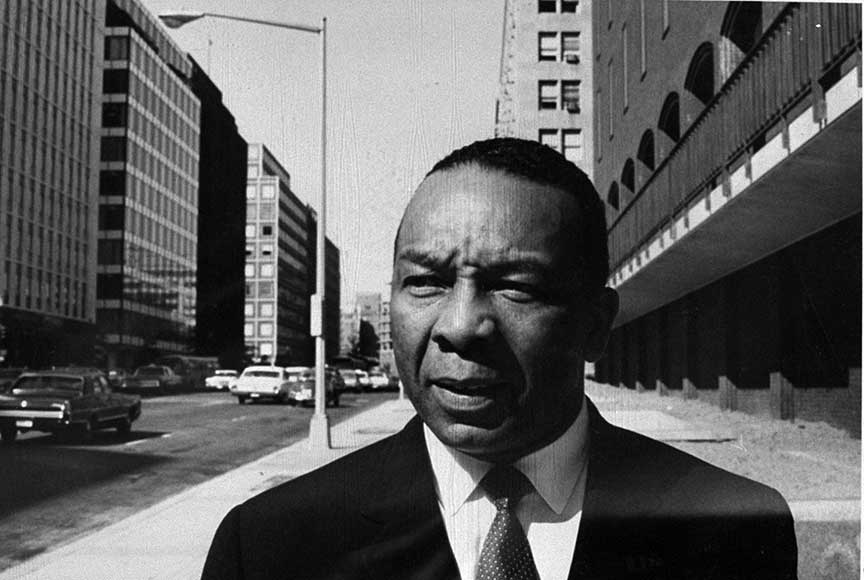1973 Bradley is Mayor of LA

In 1973, Tom Bradley was elected to be the first Black Mayor of Los Angeles, the third largest city in the US. He served as mayor from 1973 to 1993..
In 1973, Tom Bradley made history by becoming the first Black mayor of Los Angeles, the third-largest city in the United States. His election was a significant milestone in the civil rights movement and marked a turning point in the city's political and social landscape. Bradley's victory was the result of a broad coalition of support, including African Americans, Latinos, liberal whites, and Jewish voters, who were drawn to his message of unity, progress, and reform.
Born on December 29, 1917, in Calvert, Texas, Bradley moved to Los Angeles with his family at a young age. He grew up in a segregated Los Angeles, where he faced racial discrimination but excelled academically and athletically. Bradley attended the University of California, Los Angeles (UCLA) on a track scholarship, becoming one of the few Black students at the university. After serving as a police officer with the Los Angeles Police Department (LAPD) for 21 years, Bradley pursued a law degree and entered politics.
Bradley first entered the political arena in 1963 when he was elected to the Los Angeles City Council, representing the 10th District, a position he held until his successful mayoral campaign a decade later. As a councilman, Bradley became known for his efforts to improve community-police relations, his advocacy for civil rights, and his push for economic development in underserved areas of the city.
Bradley's 1973 mayoral campaign was not his first attempt at the office; he had run for mayor in 1969 but was defeated by incumbent Mayor Sam Yorty, who used race-baiting tactics to appeal to white voters. However, by 1973, the demographics of Los Angeles had begun to shift, and Bradley's message of inclusivity and progress resonated with a broader segment of the electorate. His victory in 1973 made him the first African American to be elected mayor of Los Angeles and the second African American mayor of a major U.S. city, following Carl Stokes of Cleveland.
During his 20 years as mayor, Bradley oversaw significant changes in Los Angeles. Under his leadership, the city experienced economic growth, particularly in the downtown area, which saw the construction of numerous skyscrapers and the expansion of the Los Angeles International Airport (LAX). Bradley also worked to improve public transportation, leading to the development of the Metro Rail system, which began with the opening of the Blue Line in 1990.
Bradley's tenure was marked by efforts to promote racial harmony and bridge the gap between the city's diverse communities. He sought to create a more inclusive city government and made strides in appointing minorities and women to key positions. However, his time in office was not without challenges. The Los Angeles Police Department, under Chief Daryl Gates, faced criticism for its handling of minority communities, and tensions culminated in the 1992 Los Angeles riots following the acquittal of officers involved in the beating of Rodney King.
Despite the challenges, Bradley remained a popular figure in Los Angeles politics. He was re-elected four times and served as mayor until 1993, making him the longest-serving mayor in the city's history. His legacy is evident in the many projects he championed and the progress he made in creating a more inclusive and economically vibrant Los Angeles.
After leaving office, Bradley continued to be involved in public life, serving on various boards and advocating for causes he believed in. He passed away on September 29, 1998, but his impact on Los Angeles and his role as a trailblazer in American politics continue to be remembered and celebrated.
Tom Bradley's election as mayor of Los Angeles was not just a victory for him but also a symbol of the broader changes taking place in America during the 1970s. His leadership and vision helped shape Los Angeles into the global city it is today, and his legacy as a pioneer in the fight for civil rights and equality remains an inspiration.
